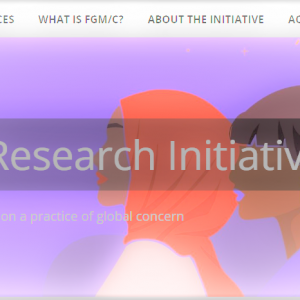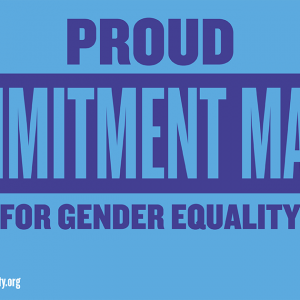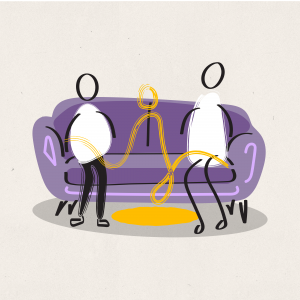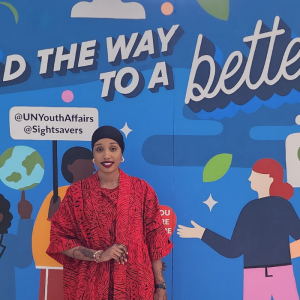Last week, Islamic Relief Canada released a field study looking into FGC in Indonesia which provides in depth detail of the context within which FGC occurs, as well as why it happens and what justifications are used.
Orchid Project have been raising the issue of FGC in Indonesia since we began, from submitting to the Universal Periodic Review of Indonesia in 2011 to recently using the country as an example of medicalisation in our response to an article suggesting a ‘lesser cut’.
On Monday, Orchid Project participated in a roundtable discussion with Islamic Relief Canada and Canadian civil society to discuss FGC in Indonesia, the findings of the field study and how we can best work together to address the issue.
A quick summary of the history of FGC in Indonesia is as follows:
- Small scale studies suggest the practice is widespread, including a 2003 study by the Population Council in which 92% of families expressed support for the continuation of FGC
- In 2006, the Ministry of Health issued a circular letter prohibiting FGC by medical professionals
- In 2008, a fatwa issued by the Indonesian Ulema Council (MUI) recommended that female Muslims undergo FGC and that the practice be provided by medical professionals if requested
- In 2010, the Indonesian Health Ministry overturned the previous ban, issuing a regulation specifying how medical staff should perform FGC and as a consequence every hospital continued to perform FGC
- This was met with an outcry from medical experts and human rights groups, who raised concerns that medicalisation doesn’t address the potentially traumatic effects of FGC and that its promotion will result in an increase in the practice
- In 2014, the Health Ministry released another regulation which revoked the prior stance but we remained concerned since the new regulation did not expressly prohibit FGC
- In February 2016, nationally representative statistics were released which showed that nearly half of girls under the age of 12 have undergone FGC, more than half of whom were cut by a trained medical professional. The inclusion of Indonesia in global statistics increased the number of girls and women affected from 140 million to 200 million
- In April 2016, Islamic Relief Canada released the latest research into the practice in Indonesia, summarised below
Headline results of the field study
FGC is widely practised in the areas explored and originates from religious and socio-cultural beliefs.
The 2010 Ministry of Health authorisation on FGC played an instrumental part in the continuation of this practice – as FGC is now marketed as part of an overall birth package in medical facilities which includes regular vaccinations and medical check-ups
While there is widespread rejection of the most severe forms of FGC (Type II and Type III) there is reported evidence of this form of FGC still being performed in Madura and in some rural locations. In addition, the lack of knowledge and awareness on how to perform FGC could result in Type II and Type III FGC being performed – without the knowledge of the cutter, girl or parents.
In order to provide evidence that FGC is having a considerable negative impact, further investigation is needed into the reported incidences of pain, fevers and – most importantly – long term traumas, such as the loss of sexual satisfaction within marriage. The absence of any such evidence could simply be that the issue is presently not able to be discussed freely by Indonesian society.
Religious and socio-cultural beliefs
FGC is seen as an Islamic act and is performed in the expectations of ‘becoming a complete Muslim’; to enhance sexual relations as part of the intimacy of marriage; control sexual behaviour and ensure clean and healthy genitals. This position is strengthened by the ruling (fatwa) issued by the MUI and other endorsements by religious leaders and institutions.
While scholars within Indonesia advocate FGC as being ’healthy’ and ’beneficial’ if carried out according to supposed prophetic guidelines, some Muslim doctors specialising in this area believe that it is impossible to duplicate FGC in the way described, as details are unspecified, impractical and unattainable. In addition, Islam puts much emphasis on preserving one’s health. Procedures that are harmful to an individual are categorically forbidden (haraam). Also embedded in the Qur’an and hadiths (reported traditions) is the emphasis on a woman’s right to marital pleasure as a God-given right. Thus, leaders who advocate against FGC around the world argue that because of the health risks attached to the practice, it should be categorically forbidden (made haraam) in all its forms. In Indonesia, however, while the most severe forms of FGC are nominally rejected, there is a consensus that the sunnah form of FGC has health and moral benefits. MUI members agreed that if evidence was presented to them outlining the harmful consequences of the sunnah form of FGC, they would as a body reconsider their position: “Islam wishes no harm upon anyone. There is no evidence to indicate that the Prophet’s guidance on FGC results in harm. If there was, of course we would have a different opinion.”
Respondents that disagreed with FGC still practised it due to social pressure. One doctor in Padang related his views: “People believe female circumcision to be a religious obligation but for me it is more about social pressure … I don’t see any benefits in this [FGC] but I had it done to my daughter based on the demands of my in-laws.”
Recommendations
- Intervention programmes must be approached from both a religious and health angle and engage with local scholars and religious institutions
- The condemnation of FGC should be justified by focusing on education and awareness of any harmful effects of the so-called sunnah version and the rights of women to experience marital pleasure
- Leading international scholars with strong influence in Indonesian society should be approached – alongside local scholars – to issue rulings (fatwas) on why FGC should be categorically forbidden in all its forms
- Campaigns should be based upon child protection and the condemnation of violence against women and women’s empowerment within an Islamic framework
- International agencies and the Indonesian government should support local civil society organisations – including religious bodies – to carry out independent research on the impact of FGC on infants, girls and families
- Direct observation of the FGC process should be carried out to determine the scale and magnitude of the actual procedure, because it is important to note that these ‘Type’ categories are approximations rather than clearly defined and distinct practices
- Relevant bodies should include Indonesia in all relevant FGC campaigns and reports and commission research on the dynamics of the practice in Indonesia
- A ban on FGC in medical facilities alongside awareness campaigns in schools, mosques and the media would prove effective in opening up the discussion and raising awareness of alternative religious understandings of the practice
- The department of education should incorporate a training and education programme in schools on reproductive health – which should include a blanket condemnation of FGC.






